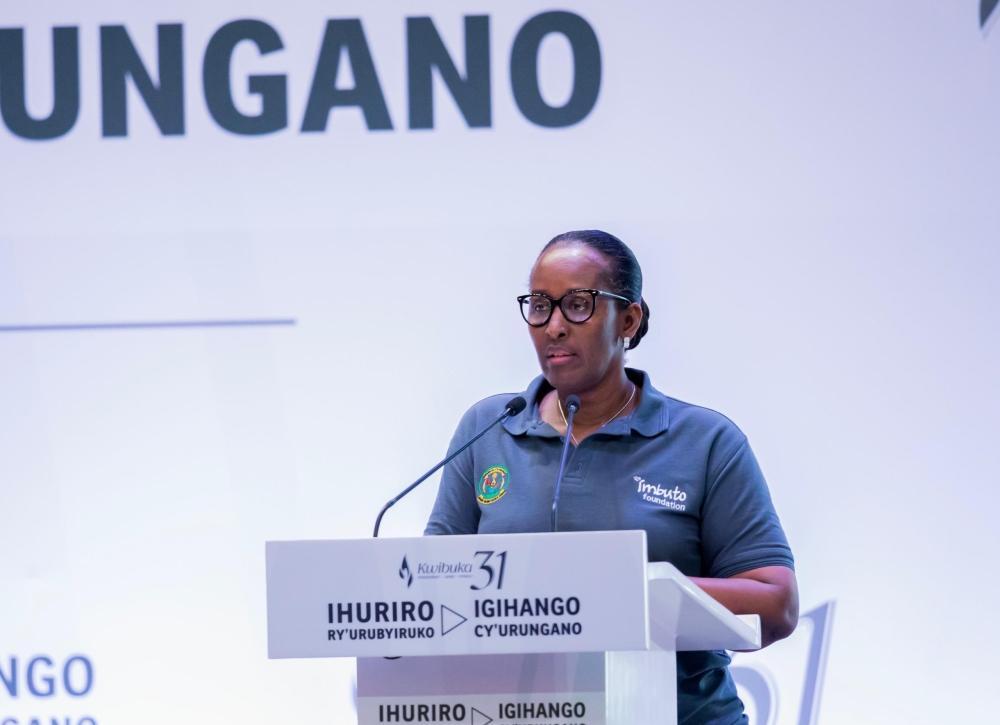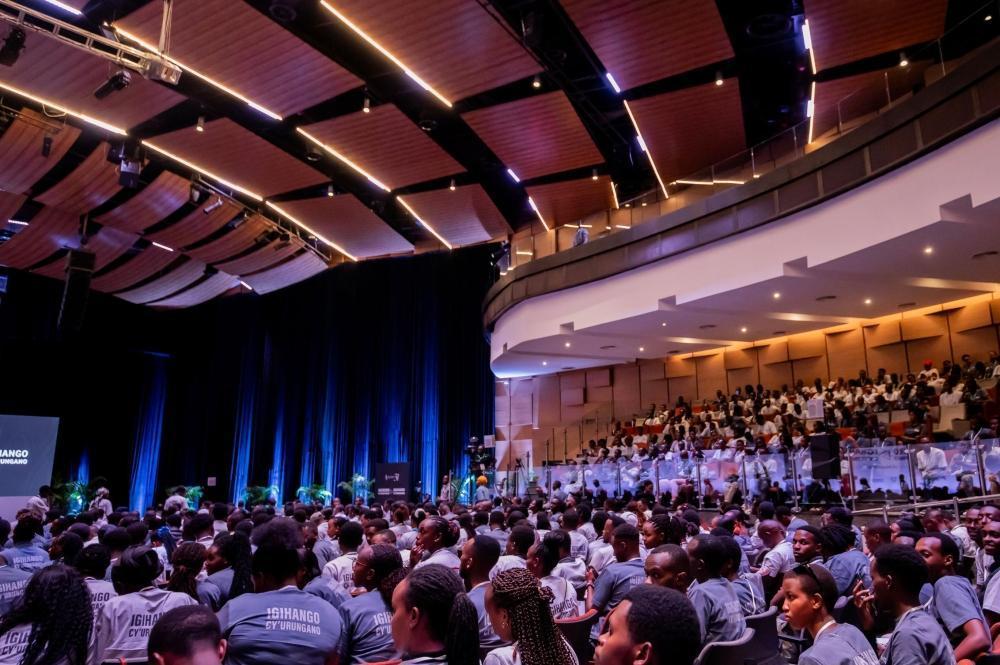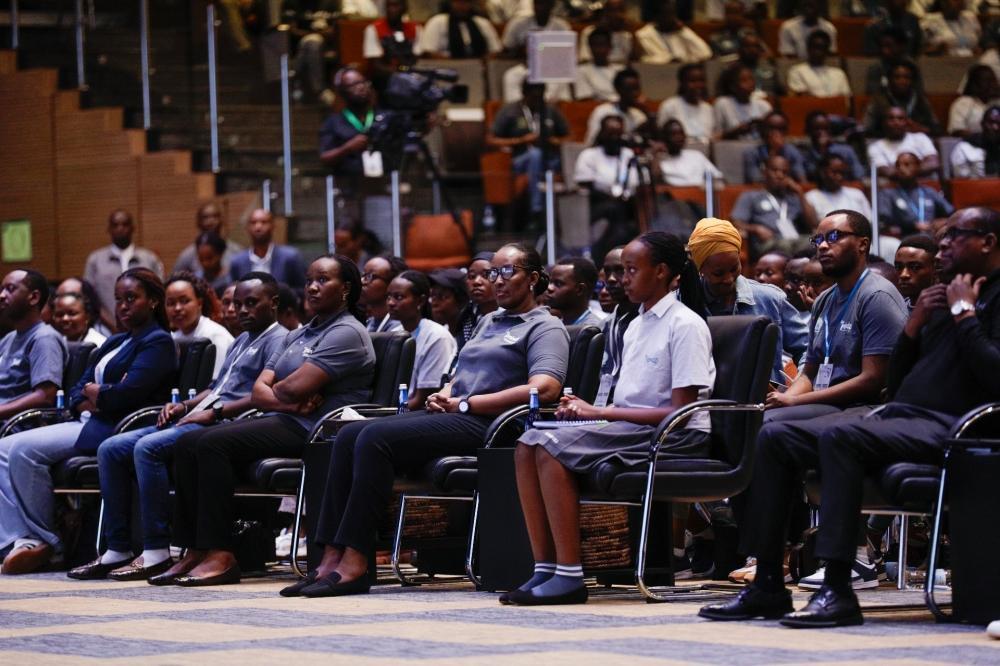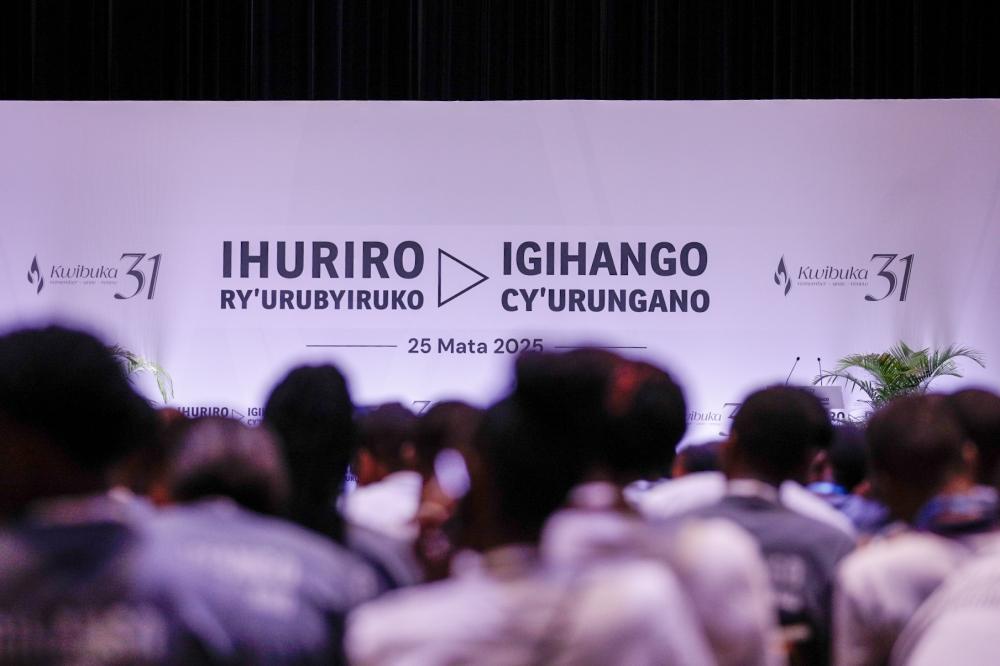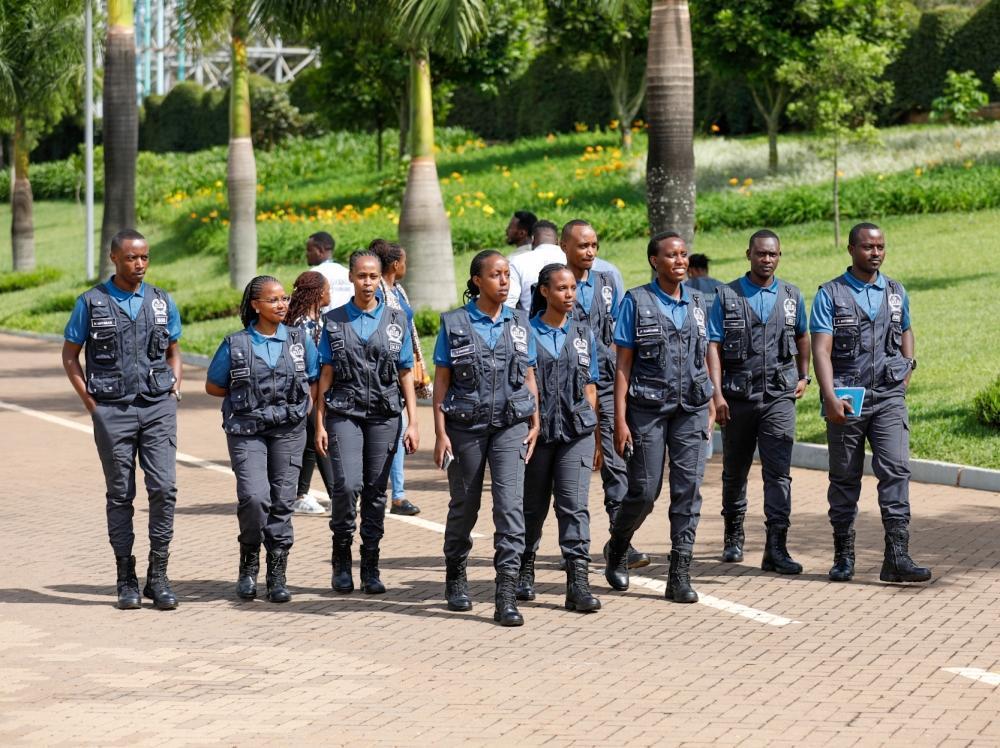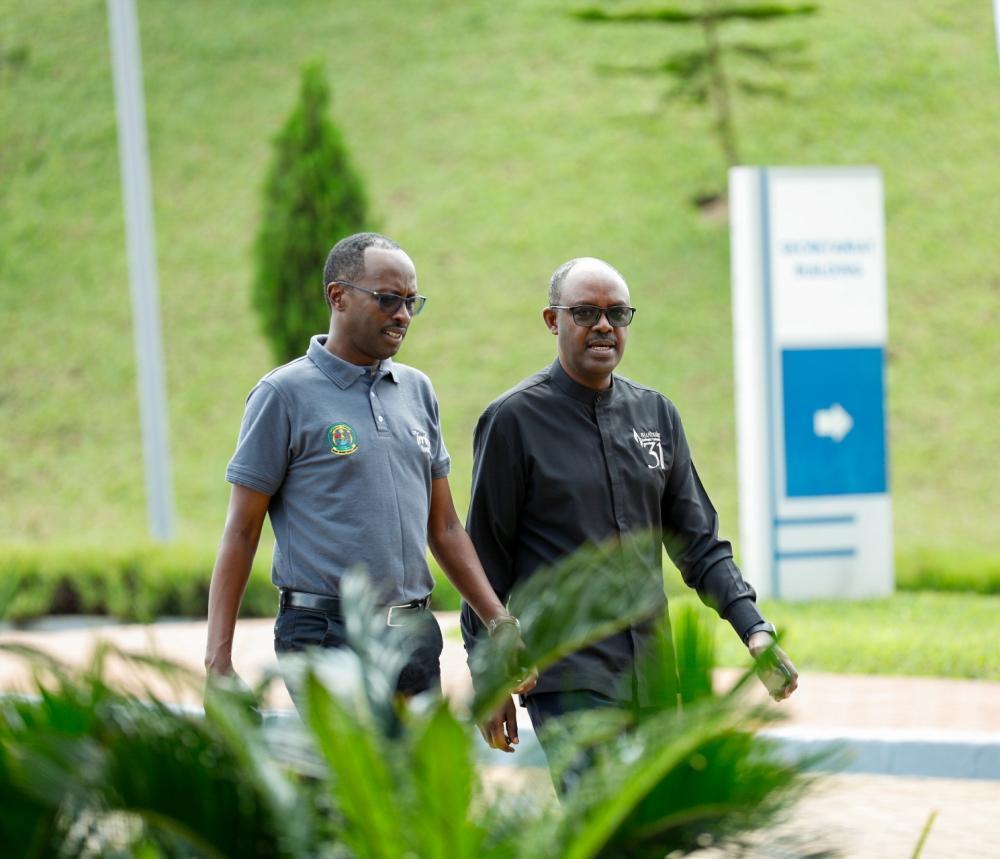Africa-Press – Rwanda. First Lady Jeannette Kagame urged young Rwandans to critically assess and fight all forms of misinformation about the country’s history on social media and those who spread Genocide ideology under the claims of freedom of expression
She made the remarks at Intare Conference Arena, on April 25, during Igihango cy’Urungano, an annual forum that brings together young people and officials to commemorate the youth killed during the 1994 Genocide against the Tutsi.
The forum provides an opportunity for young people to reflect on their role in protecting and preserving the progress made in Rwanda since the 1994 Genocide and to promote the concept of Ndi Umunyarwanda, a shared national identity, unity and resilience.
Igihango cy’Urungano is an annual forum that brings together young people and officials to commemorate the youth killed during the 1994 Genocide against the Tutsi
The First Lady paid tribute to victims of the Genocide and extended a message of comfort to young people who lost their relatives and loved ones.
She highlighted that just as research indicates that there is transmission of trauma across generations, adding that even genocide ideology can be transmitted if people do not fight against it.
“Over the past 31 years, we have seen the importance of preserving unity and resilience, defending the sacred truth when there are those who intend evil, and continuing to prioritize Rwanda and Rwandans before everything else,” she said.
Acknowledging the immense abilities of young people, the First Lady said that they are, however, surrounded by a lot of information from social media and from individuals who feel entitled to share opinions on Rwanda.
“There are now people who have become self-appointed experts on Rwanda to the extent anyone wakes up and feels they have something to say about it, supposedly for the good of Rwandans.”
She added that some of these stories seek to bring doubt among young people about the positive changes in the country, of which they are witnesses, and deceive them that history is full of confusion, leading them to question whether what happened really happened.
“The good things we have today are truly deserved,” she said.
The First Lady pointed out that denying the Genocide and belittling history is no longer done with just harsh words like before, rather, it is hidden in simple language, images, and in manipulative ways that turn true stories into jokes and call it freedom of expression.
She noted that an intelligent person is one who can discern, analyze and know what they hear and what they choose to take as truth. While they may be young, she added that they are not too young to understand why it is still necessary to stand on historical truth and continue to remember and rebuild.
“In this protection of the truth of our history, there are things that should not be debated or doubted. Genocide is not a sudden epidemic or disease, it is a plan to destroy part of the population, planned and implemented by the government in detail to the point where people prepare how to deny it,” she said.
“Genocide is not started with weapons and killing, it is started with a deadly word that discriminates against another person and distorts the truth little by little and creates hatred to the point where even a neighbor sees you as an evil thing they should get rid of. Before blood is shed, people are first brainwashed and made to think that killing is a civic duty.”
However, the First Lady told the young people that their efforts in various activities to protect Rwanda are noticed and encouraged them to continue doing so because the ideology of genocide is a bad virus that should be detected early, prevented, rejected, and fought against.
Who benefits from distorting the truth?
She asked the youth to reflect and question who benefits from the misinformation, anti-Rwanda campaigns and Genocide denialism and where the same people claiming freedom of expression were when the country was in darkness, considered a failed state.
“In the daily concerns of the youth, do not lack the strength of heart and mind to discern, to choose carefully what you believe in and who you follow. Because choosing otherwise is equivalent to refusing to live for yourself and your descendants,” she said.
The First Lady noted that it would be painful and worrying to see young people fall for the hidden tricks meant to destroy Rwanda.
“Is it shameful or embarrassing to fight or to be seen as fighting for our existence? If we really want to achieve sustainable development, this exercise is necessary,” she added.
To Rwandans who chose not to understand this path and refuse to be a part of the journey of healing wounds and transforming the country, she said “Rwanda is ours all, and we will never find another. Remember that it is forbidden.”
She called on the youth to be guardians of history, truth, unity, and resilience, noting that it is the true remembrance of their peers who were killed in the Genocide.
Jean Damascene Bizimana, the Minister of National Unity and Civic Engagement, shared the history on deliberate strategies by the genocidal government to spread divisionism, discrimination and ideology in education system.
He noted the term “Myopie sociale” which was used to mean that allowing a big number of Tutsi students in schools and places of work would be considered blindness.
However, this was not the case, as Tutsi students were a few in schools as they were systematically discriminated from education system. They comprised only 11 percent of total students, Bizimana said.
The Minister noted that the same government appointed five ministers and other politicians to supervise its implementation in collaboration with mayors across the country, and continued to recruit university students into Interahamwe groups.
There are instances where the ethnic divisions saw Hutu students riot in their schools which had Tutsi teachers and school administrators and destroying properties of Tutsi families in neighboring communities.
Bizimana noted that the extreme pit in which the country was drawn is evident and called on young people to actively fight against any form of denialism of the Genocide and discrimination while working towards unity and in support of the leadership’s vision of progress and national development.
For More News And Analysis About Rwanda Follow Africa-Press

